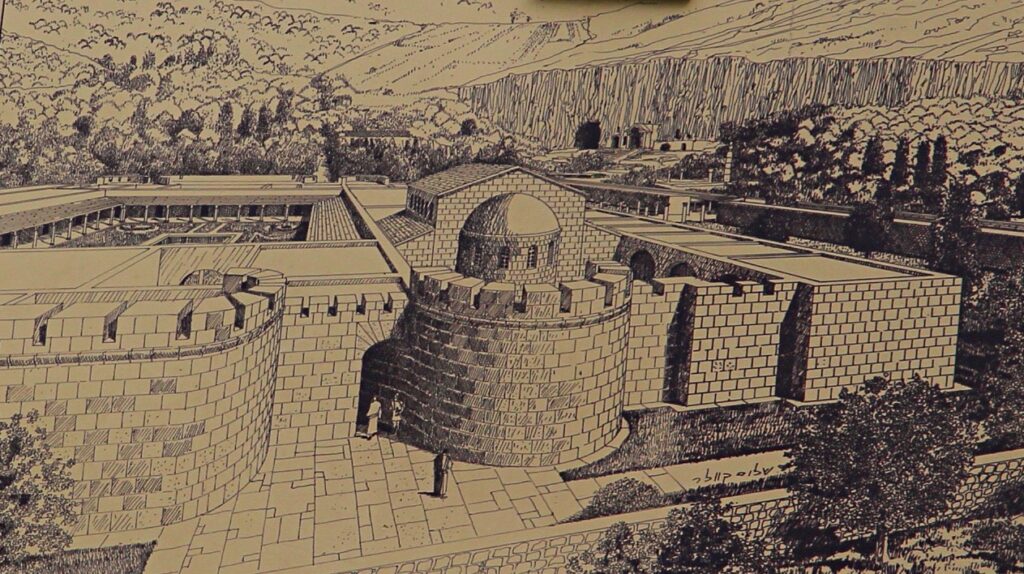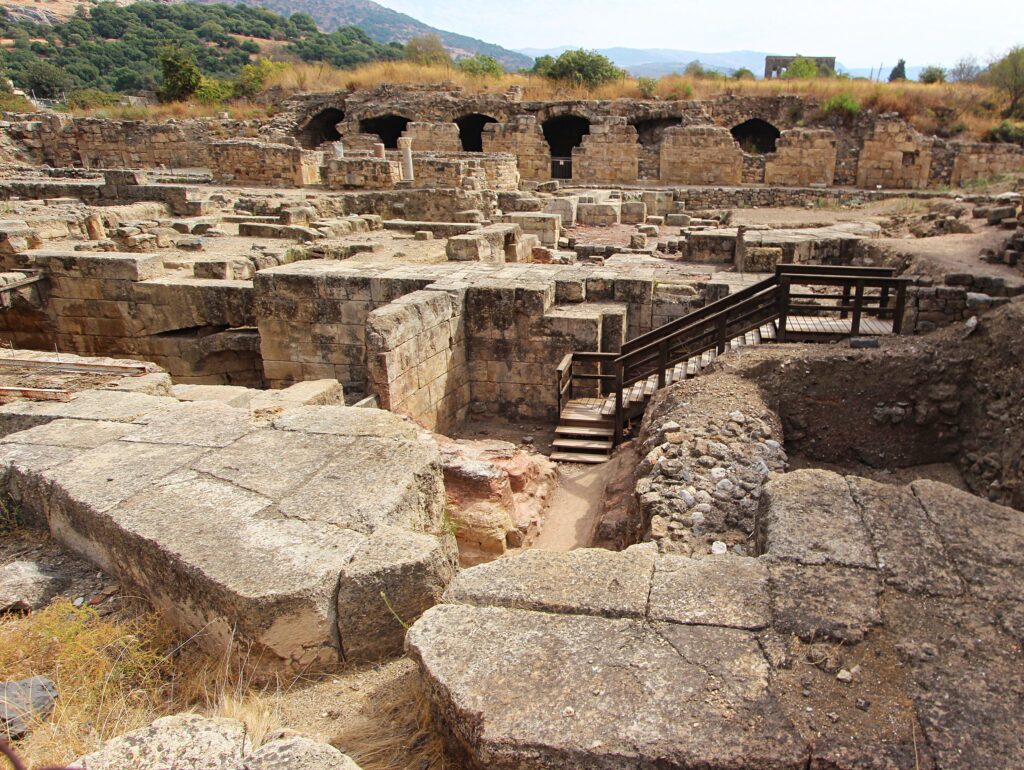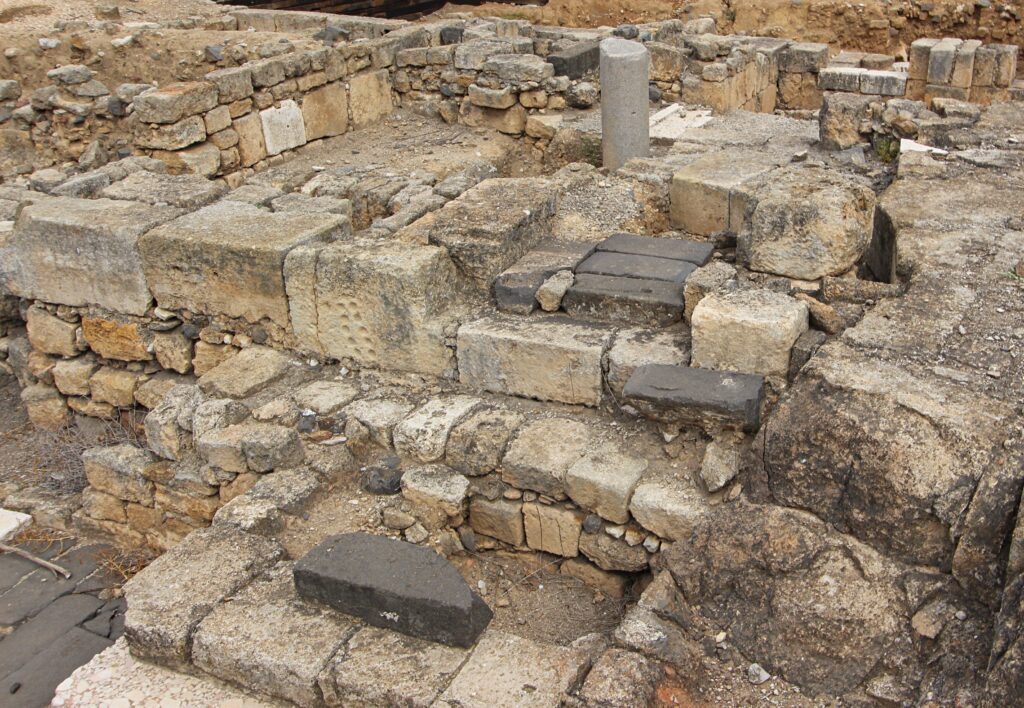
Philip the Tetrarch, son of Herod the Great, established the city of Caesarea Philippi in 2 BC. It was Philip’s capitol city from 3 BC to 34 AD. Later it was the capitol of King Herod Agrippa II from 54 to 96 AD. Later still the city’s name was changed to Panias (Banias in Arabic) after the Greek god Pan, whose shrine was established there early, possibly even before Philip built his city.
The Lord brought the 12 disciples to Caesarea Philippi, perhaps to demonstrate the difference between himself and a Greek god. While there the Lord asked the disciples,
“When Jesus came into the coasts of Caesarea Philippi, he asked his disciples, saying, Whom do men say that I the Son of man am? And they said, Some say that thou art John the Baptist: some, Elias; and others, Jeremias, or one of the prophets. He saith unto them, But whom say ye that I am? And Simon Peter answered and said, Thou art the Christ, the Son of the living God. And Jesus answered and said unto him, Blessed art thou, Simon Bar-jona: for flesh and blood hath not revealed it unto thee, but my Father which is in heaven. And I say also unto thee, That thou art Peter, and upon this rock [Peter means rock] I will build my church; and the gates of hell shall not prevail against it. And I will give unto thee the keys of the kingdom of heaven: and whatsoever thou shalt bind on earth shall be bound in heaven: and whatsoever thou shalt loose on earth shall be loosed in heaven.” Matthew 16: 13-19.


Herodian Genealogy: King Herod the Great had three sons who each inherited a portion of his kingdom. Their title was tetrarch (meaning sub-ruler or ruler of 1/4 of the kingdom). Aristobulus ruled Jerusalem and environs, but he was such a colossally bad ruler that he was quickly replaced with Roman governors. Philip, who ruled Iturea (which is north of Galilee), with Caesarea Philippi as the capitol. And Herod Antipas who ruled Galilee and parts of trans-Jordan. Herod Antipas’ wife, Herodias, was originally married to his brother, Philip, by whom she had a daughter named Salome. By the Law of Moses, marrying your husband’s brother is only permitted if your husband was dead and Philip was very much alive. This led to the account of John the Baptist detailing the illegal marriage, and Herodias’ subsequent plot to have Salome dance for Herod Antipas and ask for the head of John the Baptist (Mark 6:17-29).
Aristobulus (the son who ruled Jerusalem for a very short time) had a son named Herod Agrippa I. Following the death of his uncle, Philip, Herod Agrippa I was given his territory. Following the death of his other uncle, Herod Antipas, Herod Agrippa I was given his territory too and allowed to take the title of king. After his death, his son Herod Agrippa II took the throne. It was this Herod Agrippa II that the Apostle Paul appeared before in Caesarea (on the Mediterranean Sea, and not the same place as Caesarea Philippi). There Herod Agrippa II made the famous statement that he was “almost persuaded to become a Christian” (Acts 25:13 to 26:32).
< Previous post on The Real “Exodus” ship, From The Leon Uris Novel, Is In Haifa
Next post on The Dead Sea >
Return to the Homepage